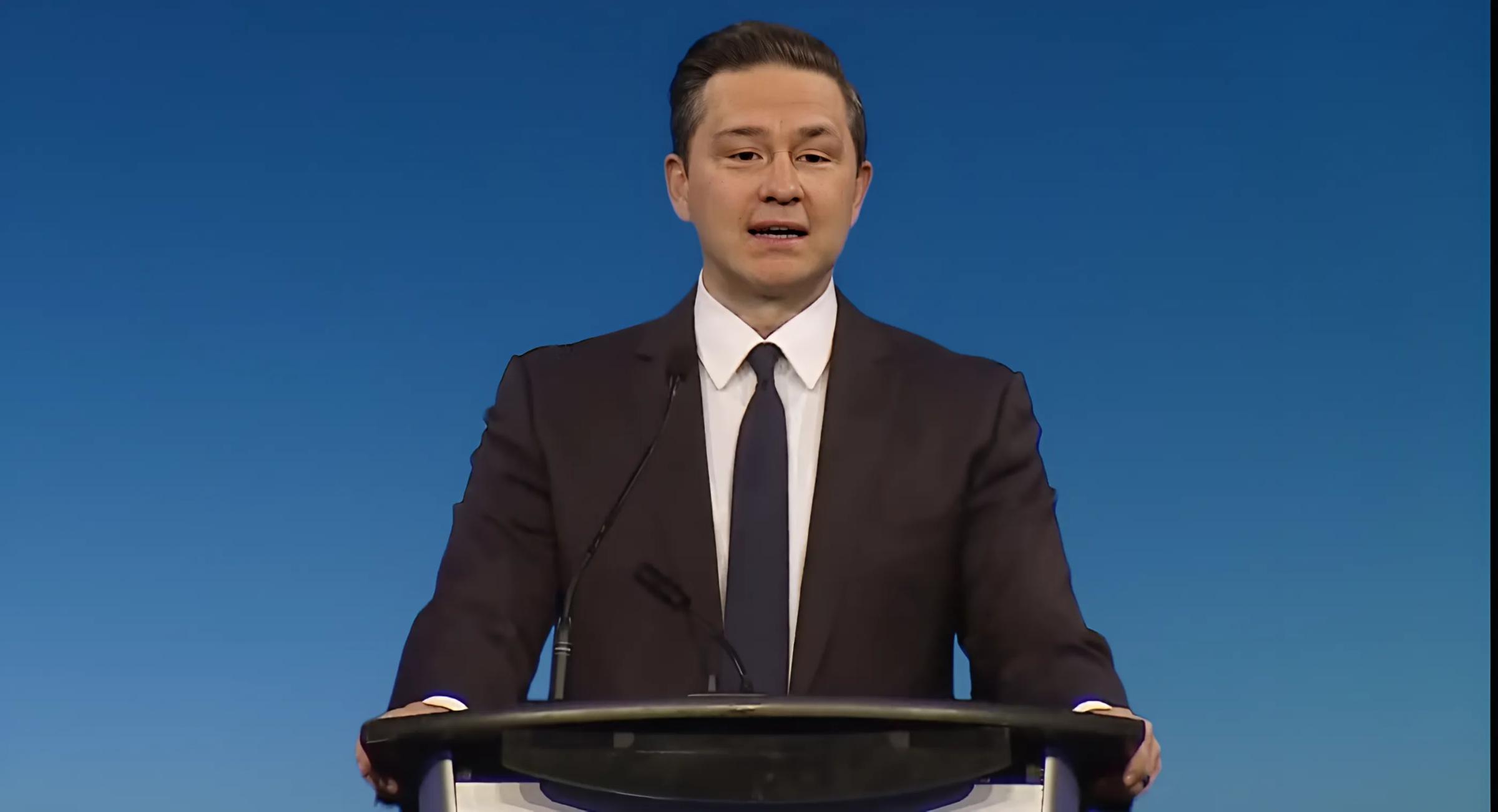In Montreal, at the Assembly of First Nations (AFN) General, Conservative Party leader Pierre Poilievre pledged to enhance the autonomy of First Nations across Canada.
Poilievre began his speech by acknowledging the long-standing presence and contributions of First Nations peoples, emphasizing the importance of their historical and constitutional rights. He highlighted the treaties and Section 35 of the Canadian Constitution, which recognize and affirm the rights and relationship of First Nations with the Crown.
“From this history flows the treaties and Section 35 constitutional rights which recognize and affirm your rights and relationship with the Crown of Canada,” Poilievre stated. He underscored the significance of these agreements and their role in shaping the nation’s identity.
The Conservative leader drew parallels between the values of First Nations communities and conservative principles, noting shared beliefs in faith, family, tradition, entrepreneurship, and stewardship of the land. Poilievre emphasized the importance of these values in guiding his actions as a potential Prime Minister.
“Values of faith and spirituality, values of acknowledging a higher Creator, values of family as the greatest social safety net we have, values of tradition, entrepreneurship, and attachment to the land will guide everything I do as Prime Minister,” Poilievre declared.
A key theme of Poilievre’s address was his commitment to reducing federal government intervention and empowering local communities. He criticized the current bureaucratic system and promised to cut red tape, allowing First Nations leaders to make decisions that best serve their communities.
“Every one of you in this room is a leader; every one of you knows your communities better than Ottawa does. That’s why we will get the government gatekeepers out of your way so you can do what’s best for your members,” Poilievre asserted.
Poilievre outlined several specific policy proposals aimed at improving the lives of First Nations peoples:
- Axe the Carbon Tax: Poilievre promised to cancel the carbon tax, which he argued disproportionately affects remote and colder First Nations communities by increasing the cost of living.
- Build the Homes: He pledged to make housing more affordable by cutting bureaucratic hurdles and introducing new financing and mortgage options.
- Stop the Crime: Poilievre highlighted the need for better policing in rural and remote communities and proposed new models that give First Nations more control over their policing strategies.
- Fix the Budget: He committed to cutting waste in Ottawa and redirecting funds to local leaders and communities, aiming to reduce dependency on federal bureaucracy.
One of the most significant proposals Poilievre announced was the First Nations Resource Charge. This initiative would allow First Nations to collect taxes from resource companies directly, with the federal government providing a 50% refundable tax credit to those companies. Poilievre argued that this approach would streamline negotiations and ensure that resource revenues go directly to First Nations communities.
“This new approach will mean the money goes directly to you rather than from the community to the federal government and then all the way back,” Poilievre explained. “It will put you back in charge of your money, resulting in more resources for your communities.”
Poilievre emphasized the importance of economic growth and development as essential components of reconciliation. He cited several successful First Nations-led projects, including the LNG Canada project and the Squamish Nation’s housing initiatives, as examples of the potential for economic empowerment within Indigenous communities.
“If reconciliation means anything, it means saying yes to economic opportunities that First Nations are asking for,” Poilievre said. He criticized the current federal government for blocking projects that have the support of First Nations and vowed to listen to and support Indigenous communities in their pursuit of economic development.
In addition to economic policies, Poilievre addressed the need for cultural preservation and education. He acknowledged the historical injustices faced by First Nations and expressed his commitment to protecting and promoting Indigenous cultures, languages, and traditions.
“Protecting and preserving history, culture, and tradition are the bedrock of conservative values,” Poilievre stated. He pledged to support knowledge keepers in passing on customs and stories to future generations and to better educate all Canadians about the contributions and history of First Nations peoples.
As the next federal election approaches, it remains to be seen how these pledges will resonate with First Nations leaders and communities, and whether Poilievre’s vision will translate into tangible change for Indigenous peoples across Canada.

